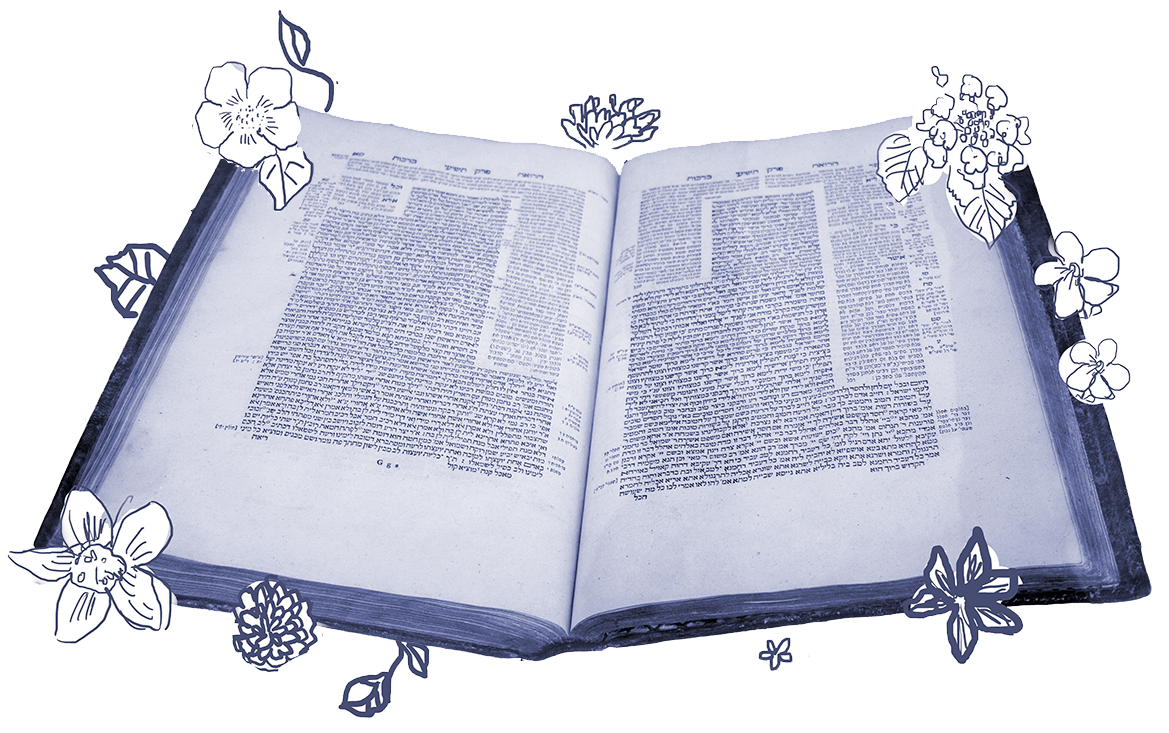The Gemara has been discussing the opening two lines of the book of Psalms:
Happy is the man who has not gone after the counsel of the wicked, or stood in the path of sinners, or sat in the company of the scorners; rather, the teaching of the Lord is his delight, and he studies that teaching day and night.
The Gemara began by analyzing the first line, determining what constitutes “the company of scorners” and warning that one who even begins walking in the path of the wicked will ultimately join their company. Today’s daf turns its attention to interpretations of the second line, and what it says about the nature of Torah learning.
But his delight is in the Torah of the Lord. (Psalms 1:2). Rabbi Yehuda HaNasi says: A person can learn Torah only from a place in the Torah that his heart desires, as it is stated: But his delight is in the Torah of the Lord.
Rabbi Yehuda HaNasi picks up on the word desire, arguing that true Torah learning only emerges when a person learns the Torah they desire, that which moves and intrigues them. Otherwise, learning risks becoming rote and lacking in depth. The Gemara follows this statement with an anecdote in which Levi, a student of Rabbi Yehuda HaNasi, takes his teacher’s drash as permission to learn his preferred book of Torah rather than that which is being taught.Rava, coming several generations after Rabbi Yehuda HaNasi, echoes his drash about learning only from the place in Torah that one desire, but also offers additional interpretations of the verse:
Initially the Torah is called by the name of the Holy Blessed One, but ultimately it is called by the name of the one who studies it. As it is first stated: His delight is in the Torah of the Lord, and then: And in his Torah he meditates day and night.
Rava offers a beautiful and precise read of the verse, pointing out that while the first clause refers to “The Torah of God,’’ the second clause describes it as “his Torah.” While the literal read is likely that the possessive in the second clause also refers to God, Rava suggests that when the verse refers to “his Torah,” it now describes the Torah as belonging to the learner. In Rava’s view, though Torah learning begins with the basic understanding that Torah is Hashem’s, in the process of our learning, the Torah becomes ours; we are not merely passively imbibing Torah, but actively acquiring it.
Rava continues:
A person must always study Torah, and only then may he analyze. As it is stated: His delight is in the Torah of the Lord, and only afterward does the verse state: And in his Torah he meditates.
Here, Rava offers his thoughts on two modes of study, bekiut and beiyun — broad, shallow learning versus targeted, in depth study. In his mind, the bekiut learning, in which one learns an extensive amount of Torah more cursorily, is a necessary underpinning for the in-depth analysis to follow. While it’s not sufficient to only ever learn a large quantity of Torah on a surface level, having a basic grasp of the Torah as a whole is, according to Rava, a necessity for successfully delving deeper into a particular text.Departing from this verse at the beginning of Psalms, Rava continues to interpret other versesin a way that provides tips for Torah study:
And Rava says: A person should always study (ligeris) and review even though he may afterward forget, and even though he does not understand what it is saying. As it is stated: My soul breaks (garesa) for the longing that it has for Your ordinances at all times. (Psalms 119:20) It is written: “Breaks,” and it is not written: Grinds.
Rava’s reading depends on multiple meanings of the verbal root g-r-s, both to break and to study. He suggests that the perfect should not be the enemy of the good. Even without full or proper comprehension, reviewing and imbibing Torah is ultimately still valuable. One’s obligation is not necessarily to “grind,” i.e. to thoroughly process and disassemble content into fine-grained understanding. Rather, the simple act of learning it and then reviewing it, examining it, breaking it apart, is already valuable. While the breaking and grinding here are metaphors for analysis, I think the notion of “breaking apart” that which we learned in the more literal sense is also of immense value. Learning material, and then seeing where it begins to fray at the seams, taking in one meaning and then deconstructing it, is already a productive step, even if one has not yet constructed something new in its place.
Read all of Avodah Zarah 19 on Sefaria.
This piece originally appeared in a My Jewish Learning Daf Yomi email newsletter sent on July 7, 2025. If you are interested in receiving the newsletter, sign up here.
With your help, My Jewish Learning can provide endless opportunities for learning, connection and discovery.



